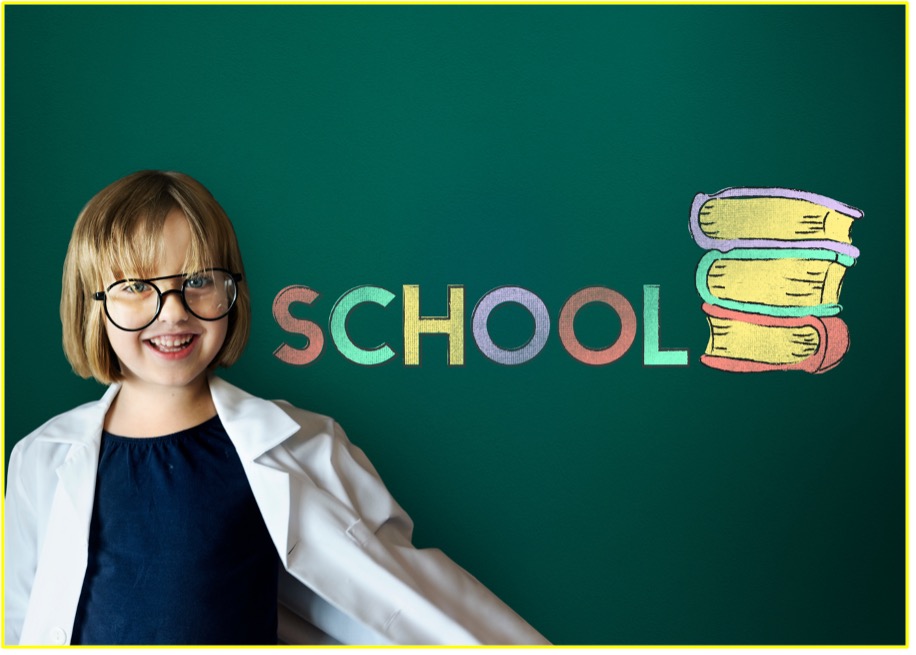
Easing the Transition for Neurodiverse Students Returning to School
As we blast off to a new school year, it can be a challenging time for neurodiverse students. The shift from the relaxed pace of summer to the structured environment of school can be overwhelming. As parents, educators, and community members, there are several thoughtful and practical steps we can take to ease this transition and support our neurodiverse students.
The Help Group’s Laurie Stephens, Ph.D., Senior Director of Autism & Clinical Services, shares her top-ten countdown to getting your student ready to go back to school.
1. Reestablish Routines Early
One of the most effective ways to prepare neurodiverse students for the school year is to reestablish routines before school starts. Begin implementing a consistent daily schedule at least two weeks before the first day of school. This can include systematically moving sleep/wake times closer and closer to what they will need to be during the school year, having regular mealtimes, and setting bedtime routines (particularly getting your child to turn off screens at least one hour before they need to go to sleep). Gradually reintroduce activities that mimic the school day, such as reading time, structured play, and quiet time.
2. Create a Visual Calendar
Many neurodiverse students benefit from visual aids. Create a visual calendar that outlines the days leading up to the start of school and the first few weeks of the school year. Include important dates such as “Back to School” orientation, the first day of school, and any special events. Use pictures, icons, or color-coding to make the calendar engaging and easy to understand. It is also helpful to have your child check off/cross out the days leading up to the first day of school to help them feel more in control of their time.
3. Visit the School Ahead of Time
Familiarity with the school environment can reduce anxiety for neurodiverse students. Arrange visits to the school before it starts, allowing the student to explore the classroom, meet the teacher, and become comfortable with the new surroundings. If possible, schedule a meeting with key staff members, such as special education coordinators or school counselors, to establish a support network from day one.
4. Review and Practice School Skills
Take some time to review skills and practice school-related activities. This can be as simple as reading books, working on puzzles, or even doing some refresher math problems. Additionally, review practical skills such as packing a backpack, using a lunchbox, and organizing school supplies. Reinforcing these skills will not only boost confidence and readiness but also make the mornings run a little more smoothly.
5. Discuss Expectations and Emotions
When appropriate, openly discuss what the new school year will entail, addressing both academic expectations and social dynamics. Encourage the student to express their feelings about going back to school, whether they are excited, nervous, or a mix of both. Validate their emotions and reassure them that it’s normal to feel a range of feelings about this transition. You can also develop anxiety-reduction strategies, such as deep breathing, mindful tapping, and sensory calming activities.
6. Develop a Sensory Toolkit
Neurodiverse students often have unique sensory needs. Develop a sensory toolkit that can be used at school to help manage sensory input. This might include noise-canceling headphones, fidget toys, or a weighted blanket. Work with your student’s teachers and team to ensure these tools are integrated into the student’s daily routine. If you have particular items that you know are helpful in regulating your child, feel free to share these with the teacher, school administration, or occupational therapists.
7. Establish a Communication Plan
Effective communication between parents, teachers, and support staff is crucial for the success of neurodiverse students. Establish a communication plan that includes regular updates on what is happening both at home and in the classroom, on the student’s progress, on any challenges they are facing, and on strategies that are working well. Utilize communication tools such as email, phone calls, or a communication notebook to maintain a consistent flow of information.
8. Encourage Peer Connections
Fostering positive peer relationships can enhance the school experience for neurodiverse students. If possible, arrange a playdate with a classmate before school starts to help the student rebuild connections that may have lapsed over summer. Playdates with structure, such as baking cookies together or making an art project, often work best, particularly if your child has not had many opportunities to share and interact with peers during the summer.
9. Monitor and Adjust as Needed
Once the school year begins, closely monitor your student’s mood and behavior and be ready to make necessary adjustments. Regularly check in with the student to gauge their comfort level and address any concerns promptly. Collaborate with the school’s support team to discuss modifications to the student’s learning plan if necessary.
10. Celebrate Achievements
Going back to school is not easy for many students, so be sure to acknowledge and celebrate your student’s achievements, no matter how small. Positive reinforcement can boost confidence and motivation. Recognize their efforts in adjusting to the new school year and celebrate milestones along the way. Research has shown that praising effort over accuracy increases a child’s resilience and leads to higher motivation to try new and challenging activities. You can also praise your child for trying or even being willing to go to school so that you keep the focus positive.
By taking these thoughtful steps, you can create a supportive and welcoming environment that eases the transition for neurodiverse students returning to school. Work together with your school for a successful and enriching school year.
Have a question about our schools and programs?
Contact us at:admissions@thehelpgroup.org

Dr. Laurie Stephens is a developmental psychologist who has been working with children, teens, and young adults on the autism spectrum for over 30 years. She currently serves as The Help Group’s Senior Director of Autism & Clinical Programs. Previously, Dr. Stephens served as the Director of Clinical Services for Education Spectrum for 12 years. She provided diagnostic and psycho-educational evaluations, individual & family therapy, social skills training, educational consultation and professional, academic and parent training. Dr. Stephens has lectured around the world, focusing on social skills development and intervention strategies.
Dr. Stephens received her BA in Experimental Psychology from UC San Diego, and her Ph.D. in Developmental Psychology from SUNY Stony Brook. Prior to working with Education Spectrum, Dr. Stephens served for 8 years as the Director of Autism Spectrum Disorders Programs at The Help Group. In her position then, Dr. Stephens created Young Learners Preschool for Autism and designed comprehensive education, behavioral and social skills programs for all the specialized day schools. She established an intensive social skills summer camp program for children with Asperger’s Disorder, which had an international reach with campers coming from the United Kingdom, El Salvador, Japan, Korea, Mexico, the UAE and other countries.
Dr. Stephens’ primary area of specialty is in designing social skills curriculum, with a new-found passion for the changing nature of social expectations in the digital age. She has designed, run and supervised social skill groups for children as young as two years of age up through young adults. Dr. Stephens has focused much of her work on the development of theory of mind and how it relates to all aspects of a person’s functioning.
